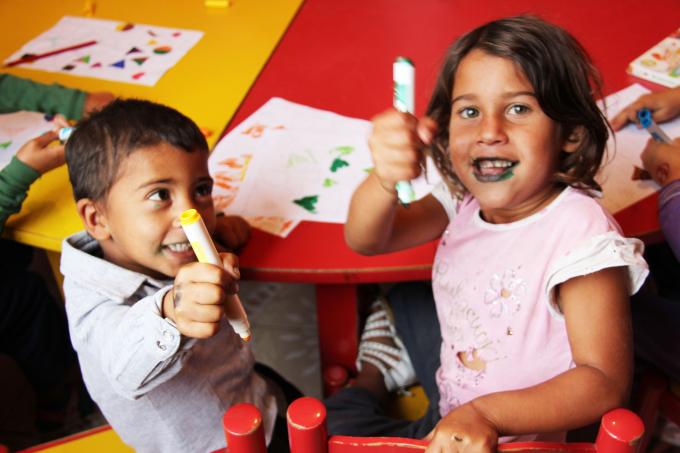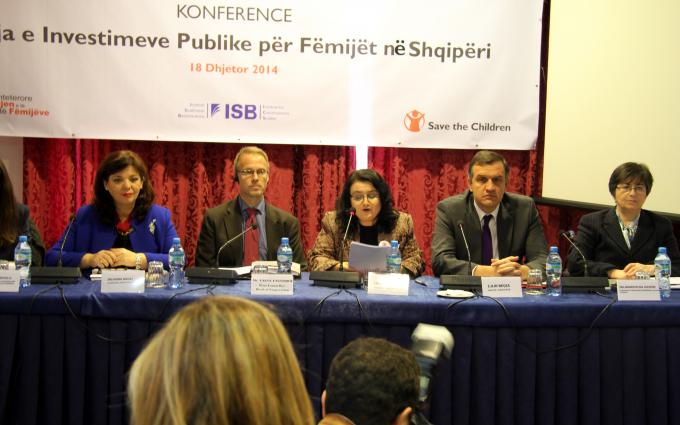Public expenditures are not sufficient for the realization of the Children Rights
The study "Mid-Term Review of the National Action Plan for Children, Budgetary Analysis and Expenditure for Children at the central level" notes that in recent years more and more attention is paid to allocation of funds to key areas for children such as social protection, social care services and vocational education. However, in order to have effective change, children's rights must be placed at the center of public policy and budgetary policy in particular.
This study, the first of its kind in Albania, was presented at the conference "Increasing Investment for children in Albania" organized by Save the Children. This conference aimed to raise awareness about the importance of increasing public investment for children and transparency in their management. This event was widely covered by national media and enjoyed the participation of high level government authorities, EU, child rights experts, CSO and children.
The new study is carried out in the framework of two-year project "Unlocking the pot of resources for children in Albania" funded by EU and implemented by Save the Children, in partnership with the Institute of Contemporary Studies and in cooperation with the State Agency for Protection of the Rights of the Child. It aims to help all actors, working in the field of children's rights, to be more effective in their efforts to design and implement child-centered policies and programs.
Some of the key findings:
In Education: Public spending on education, at around 2.8% of GDP is low compared to the region and neighbouring countries. In comparison, other countries in the region such as Serbia and Croatia spend an average of 5-6% of GDP on education, and OECD countries spend an average of 6.3% of GDP. Current spending levels are well below the target of 5% of GDP set by the current government programme. Albania’s expenditure on education as a share of general government expenditures has fallen from 11.3% in 2005, to 10.3% in 2012 and 8.5% in 2015. Funding for the education sector has increased in nominal terms, but its share of GDP will continue the downward pattern throughout 2017. Spending in basic education is dominated by teachers’ wages, which make up for approximately 96% of total current expenditure in the basic education programme. Spending in non-wage items is extremely limited and may affect the quality of teaching.
In Health: there are greater reductions in capital expenditure of primary health care and secondary programs, when in meantime, the most important for children is primary health care, which covers primary health care facilities across the country and the family doctor service. Malnutrition in ages under 6 years old is in very high rates. This rate amounts to 27% and is related to poverty than households.
In Social Protection - about 85 thousand from 144 thousand children living in poor families benefit from the economic aid scheme. Social services in rural areas are very limited, if not non-existent, especially with regard to children with disabilities or children in the early ages- where there is a lack of creches and kindergartens.
In Juvenile Justice - Albania has recently adopted a series of measures to the Juvenile Justice area, aiming to improve the situation of children and youth in this system. However, costs for children in institutions or alternative forms of punishment remain limited. The data do not allow for detailed analysis to understand the differences in costs intended for children or adults. Department of Justice must concentrate more investment in alternative forms of punishment for children.
Through this study Save the Children recommends: Increasing public investment for children, according to a vision that guarantees the realization of children's rights in Albania. Goverment should ensure appropriate resources based on equal access and regardless of economic status, ethnicity or location of children. Government programs for children should be linked with appropriate budget allocations to provide a better future for children.
 Albania
Albania 
